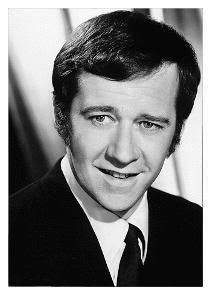 By now anyone who cares to read a review (and I have plenty of good ones here) knows that Wall-E is a cautionary tale against consumerism, big business, and disregard for the environment. Wall-E is the last of the robots left behind to clean up the earth; a little fellow who does his duty but leaves room to delight in what his curiosity brings to light.
By now anyone who cares to read a review (and I have plenty of good ones here) knows that Wall-E is a cautionary tale against consumerism, big business, and disregard for the environment. Wall-E is the last of the robots left behind to clean up the earth; a little fellow who does his duty but leaves room to delight in what his curiosity brings to light.What you may not know is that this is the movie that can also make you anxious about a cockroach's fate (something I surely thought impossible), delight in the indomitable human spirit, and leave you feeling both joy and hope about the future. This is a big accomplishment.
As big an accomplishment is that the movie is largely without human dialogue, aside from the last part of the movie. In the finest tradition of old cartoons such as Road Runner or Bugs Bunny (which the opening short takes us back to in both style and story line), this movie expresses creativity in using sounds and actions to show us exactly how fine an art storytelling can be. We saw the movie with an audience of perhaps 1/3 children (that in itself is an accomplishment for an animated movie under the Disney flag) and never once did we hear anyone plaintively asking, "What is happening?"
Additional creativity is unleashed in the first half of the closing credits where the movie's storyline continues as reflected through the development of art. Not only is it a delight to watch but a clearer underline to the point of mankind's creative spirit could not be made.
Interestingly, this movie blends in images of real people. We only see them via holographs as recordings but they are there to underscore specific important points and to speak to the people in their future.
The movie is full of science fiction references for those who know where to look. Even those who don't like the genre will recognize the reference to 2001's Hal which is used to great effect. Those who know a bit more will recognize some of my favorite references, such as to Aliens in the airlock scene and to a favorite episode of Futurama when they recognize Sigorney Weaver's voice as that of the ship. I know I picked up very few of these references and will be checking out the trivia page at IMDB to find the rest.
There are two criticisms I have seen in reviews that I think are incorrect.
One is that this is a gnostic movie and not a "Christian" movie. Untrue. From time immemorial we have told and loved the story of the humble oddball not following the accepted way ... it is he who shines the light on where everyone else has gotten off track. It is Everyman's story and, ultimately, it holds the seeds of truth to allow us to recognize Christ's story as Truth itself. This story is in that fine tradition of showing what is best in man. Wall-E epitomizes curiosity, creativity, love of art, self-expression, a desire to love and be loved, and self-sacrifice for those he loves in cause of the bigger picture. Christians do not need to have it spelled out more than that. Read the Christianity Today and Catholic Exchange reviews from the link above.
Secondly, I have seen the people in the movie characterized as lazy slobs who only care about consuming more and more. The point, which is made very subtly, is that these people had their lives change little by little until they didn't know there was another way to live. The scenes with John and Mary show this most clearly with the Captain's realizations and the scenes of the babies reinforcing the point. They are not the way they are by choice as they make other choices when the blinders are knocked off and they can see the light of having more than one path.
I also would like to add that, although this movie clearly is against consumerism and big business, it is fair. Big business is shown to try to fix their mistakes. They do a very bad job but they clearly meant it all for the best. They are not shown as evil or plotting. They are simply run by people who lost track of balance. That the people in the movie's past were their victims was through their own choice (here I am applying the message to our own lives as we are meant to).
This movie joins my favorites from Pixar and makes a trinity of good watching which should speak to us as modern men about the choices we make and living thoughtfully: The Incredibles, Ratatouille, and ... now ... Wall-E.
Highly recommended.
Update -- Spoilers!
A commenter made an excellent point that had escaped me entirely and I will quote it here:
... one part I haven't seen commented on was when Eve goes into hibernation (or whatever that was) and Walle takes such good care of her, even though she cannot respond.
It made me think of how we need to take care of the frail among us. The image of Terri Schaivo came immediately to mind.



















